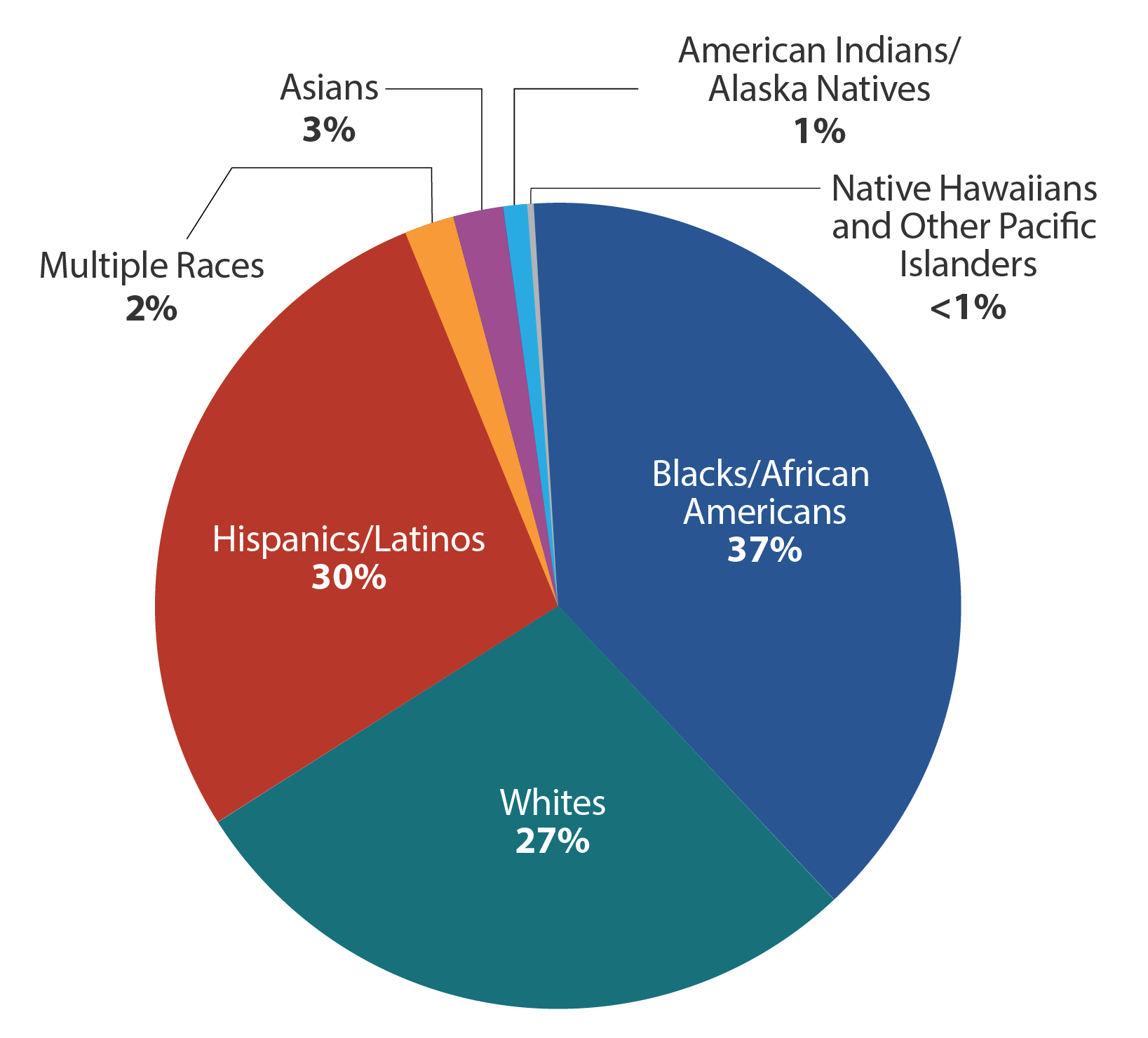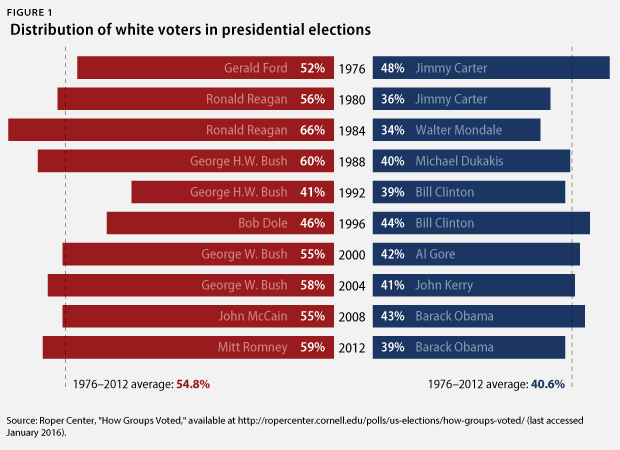
 In 2018, 3.8 percent of African American adults reported serious psychological distress. 6.2 percent of African American adults received prescription medication for mental health services compared with 15.3 percent of non-Hispanic white adults. In 2018, 8.7 percent of African American adults received mental health services compared with 18.6 percent of non-Hispanic white adults. In 2017, 12.6 percent of African American children had asthma compared with 7.7 percent of non-Hispanic white children. Forty-two percent of African American adults over age 20 suffer from hypertension compared with 28.7 percent of non-Hispanic white adults. Eighty percent of African American women are overweight or obese compared to 64.8 percent of non-Hispanic white women. 13.8 percent of African Americans reported having fair or poor health compared with 8.3 percent of non-Hispanic whites. 12.1 percent of Africans Americans under the age of 65 reported having no health insurance coverage. 44.1 percent of African Americans had government health insurance coverage in 2017. 89.4 percent of African Americans had health care coverage in 2017 compared with 93.7 percent of white Americans. In 2017, 10.6 percent of African Americans were uninsured compared with 5.9 percent of non-Hispanic whites.
In 2018, 3.8 percent of African American adults reported serious psychological distress. 6.2 percent of African American adults received prescription medication for mental health services compared with 15.3 percent of non-Hispanic white adults. In 2018, 8.7 percent of African American adults received mental health services compared with 18.6 percent of non-Hispanic white adults. In 2017, 12.6 percent of African American children had asthma compared with 7.7 percent of non-Hispanic white children. Forty-two percent of African American adults over age 20 suffer from hypertension compared with 28.7 percent of non-Hispanic white adults. Eighty percent of African American women are overweight or obese compared to 64.8 percent of non-Hispanic white women. 13.8 percent of African Americans reported having fair or poor health compared with 8.3 percent of non-Hispanic whites. 12.1 percent of Africans Americans under the age of 65 reported having no health insurance coverage. 44.1 percent of African Americans had government health insurance coverage in 2017. 89.4 percent of African Americans had health care coverage in 2017 compared with 93.7 percent of white Americans. In 2017, 10.6 percent of African Americans were uninsured compared with 5.9 percent of non-Hispanic whites. 
African Americans or Black AmericansĪn African American or Black person is any individual with total or partial ancestry from any of the Black racial groups of Africa.

Alleviating health disparities will require a deliberate and sustained effort to address social determinants of health, such as poverty, segregation, environmental degradation, and racial discrimination. This fact sheet sheds light on some of the most persistent inequities facing African Americans or Black Americans, Hispanic Americans or Latinx Americans, Asian Americans, Native Hawaiian or other Pacific Islander Americans, and American Indians or Alaska Natives. These disparities are not a result of individual or group behavior but decades of systematic inequality in American economic, housing, and health care systems. The United States is home to stark and persistent racial disparities in health coverage, chronic health conditions, mental health, and mortality.







 0 kommentar(er)
0 kommentar(er)
